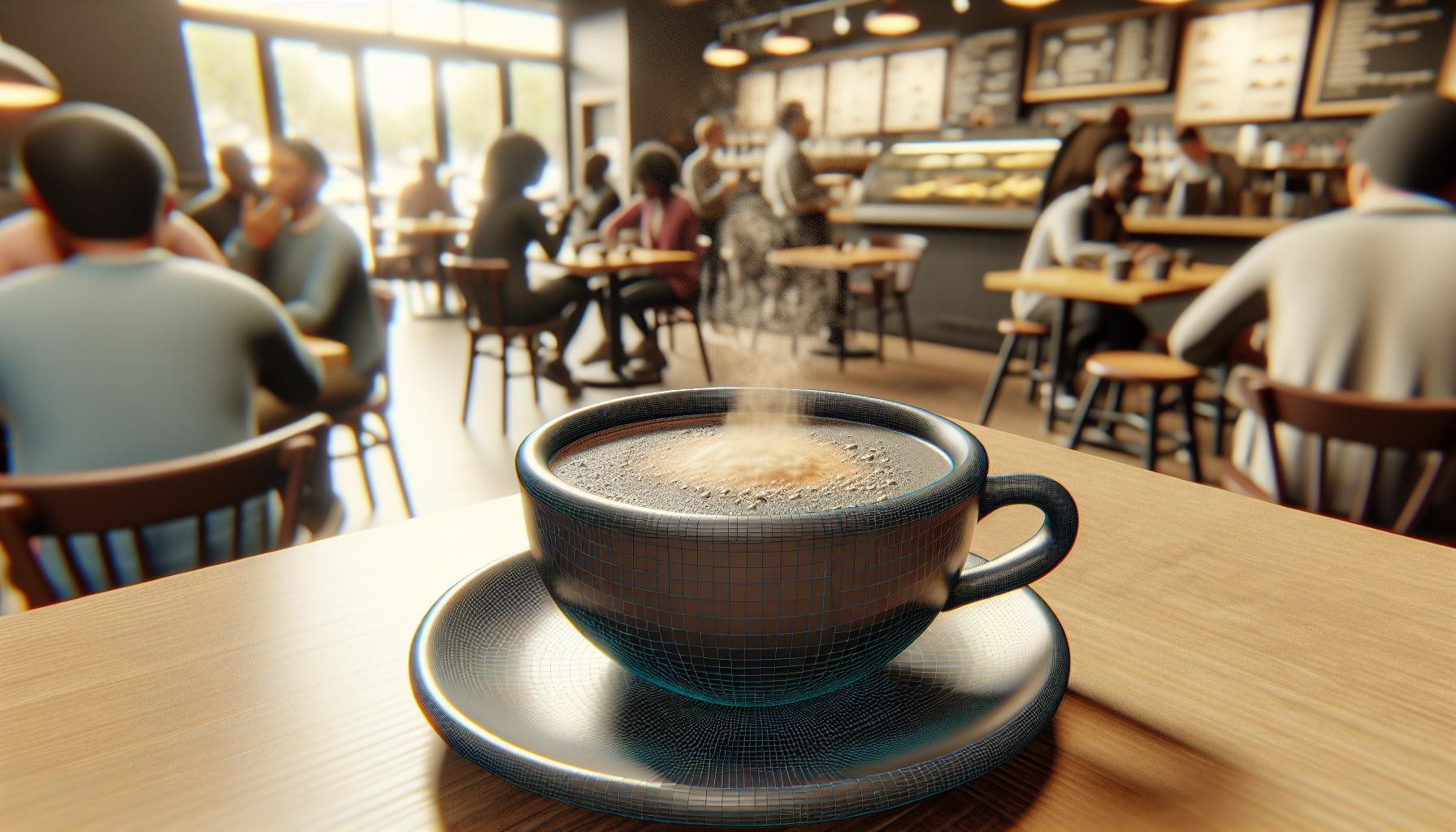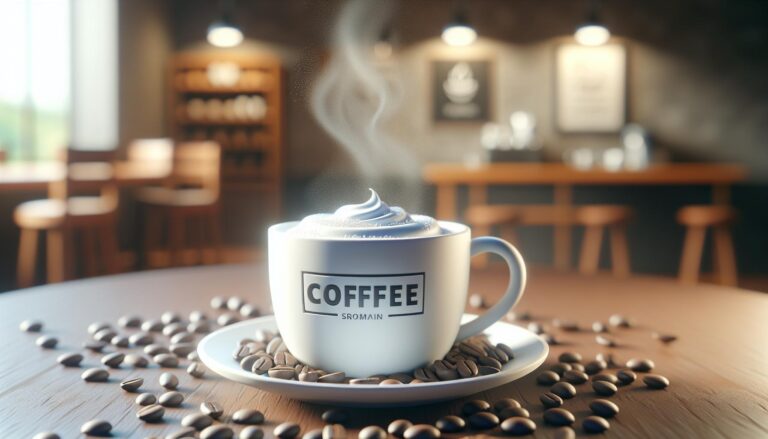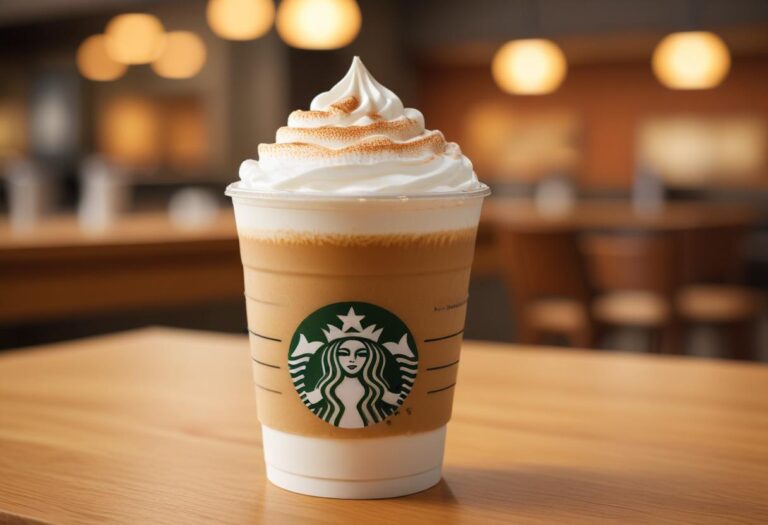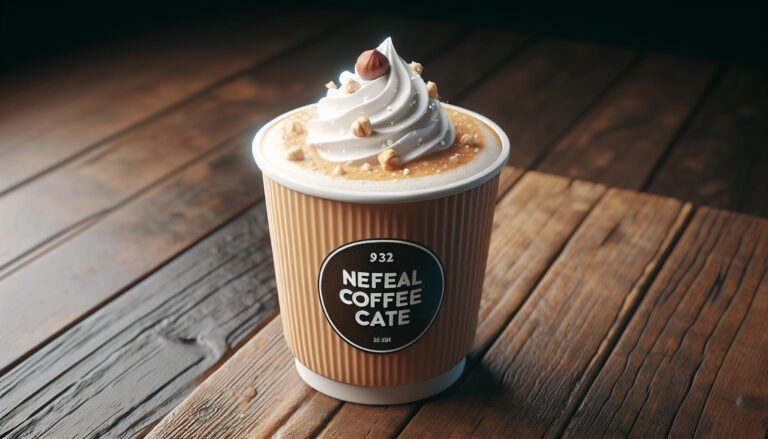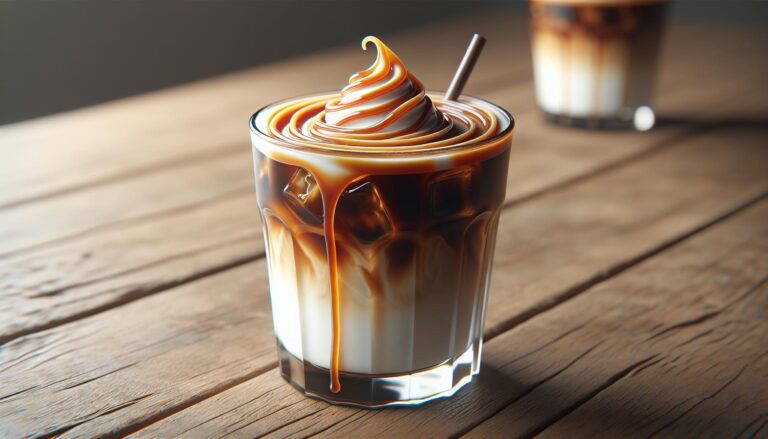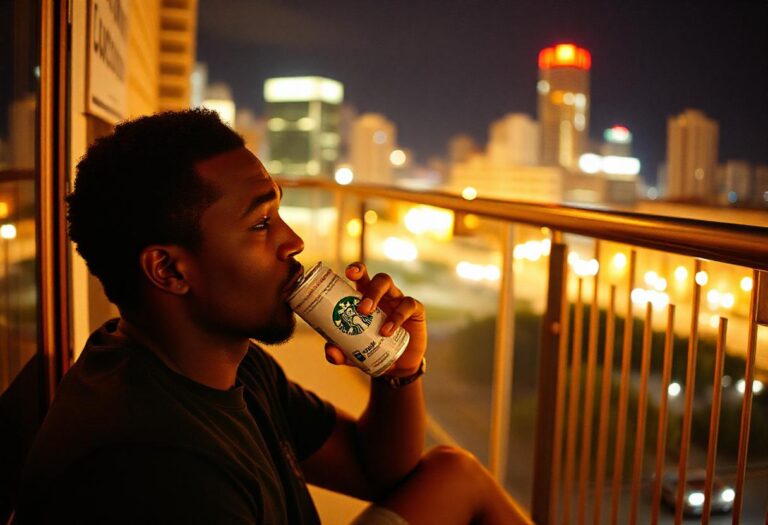Starbucks Decaf Coffee Caffeine Content: Facts & Brewing Methods!
How much caffeine is in a Starbucks Decaf Coffee? A 16-ounce (Grande) cup of Starbucks Decaf Coffee contains approximately 15 to 30 milligrams of caffeine.
While decaf coffee is significantly lower in caffeine compared to regular coffee, it still provides a mild caffeine boost while allowing you to enjoy the rich flavors of Starbucks coffee without the full effects of caffeine.
In this article, we will explore the caffeine content of Starbucks Decaf Coffee and what makes it a popular choice for those seeking a low-caffeine option.
Key Takeaways
- Starbucks Decaf Coffee Contains Some Caffeine: An 8-ounce cup has about 10-15 milligrams of caffeine, significantly less compared to regular coffee, which contains around 95 milligrams.
- Decaf Coffee Is Not Completely Caffeine-Free: Various decaffeination methods, including the Swiss Water Process and Direct Solvent Process, remove most but not all caffeine.
- Health Implications: While low in caffeine, decaf coffee may still pose slight risks for very sensitive individuals or those needing strict caffeine avoidance, including potential sleep disruptions and interactions with medications.
- Brewing Factors Matter: The caffeine content in decaf coffee can vary based on brewing time, temperature, and coffee-to-water ratio, with longer brewing times and higher temperatures extracting more caffeine.
- Benefits of Choosing Decaf: Opting for decaf can reduce jitteriness, anxiety, insomnia, and promote better cardiovascular health, making it a safer choice for pregnant women and people with certain health conditions.
Understanding Decaf Coffee
Decaf coffee removes most of the caffeine, but not all. Starbucks’ decaf coffee still has a small caffeine amount, so it’s not completely caffeine-free.
What Is Decaf Coffee?
Decaf coffee refers to coffee that has had most of its caffeine removed. While it’s called “decaf,” it still contains small caffeine amounts.
For example, an average 8-ounce cup of Starbucks decaf coffee has about 10-15 milligrams of caffeine, compared to 95 milligrams in regular coffee. People choose decaf coffee to reduce caffeine intake while still enjoying the flavor.
How Is Coffee Decaffeinated?
Coffee beans get decaffeinated through several methods. The most common methods are:
- Solvent-Based Process: Uses chemicals like methylene chloride or ethyl acetate to remove caffeine. Beans soak in these solvents, which extract the caffeine, then get steamed to remove any solvent traces.
- Water-Based Process: Known as the Swiss Water Process, uses water to extract caffeine. Beans soak in hot water, which dissolves caffeine, and then filters it out. This method avoids using chemicals but can sometimes affect flavor.
- CO2 Method: Introduces carbon dioxide at high pressure to extract caffeine. The CO2 acts as a solvent, selectively binding with the caffeine molecules. This method retains more of the beans’ original flavors.
These methods ensure that Starbucks decaf coffee provides a balance of reduced caffeine and rich flavor.
Also Read: Starbucks Dark Roast Caffeine Content
Starbucks Decaf Coffee Caffeine Content
Starbucks decaf coffee isn’t completely free of caffeine. Knowing the caffeine content helps make informed choices.
How Much Caffeine Is in Starbucks Decaf Coffee?
An 8-ounce cup of Starbucks decaf coffee contains about 10-15 milligrams of caffeine. For a 16-ounce (grande) size, this increases to 20-25 milligrams.
Comparing Starbucks Decaf to Regular Coffee
Regular coffee at Starbucks has significantly more caffeine. An 8-ounce cup contains about 95 milligrams, while a 16-ounce size can have 190 milligrams. Choosing decaf reduces caffeine intake by roughly 80-90%.
Caffeine Content Comparison:
| Beverage Size | Starbucks Decaf | Regular Coffee |
|---|---|---|
| 8-ounce | 10-15 mg | 95 mg |
| 16-ounce | 20-25 mg | 190 mg |
Understanding these values helps manage your caffeine consumption effectively.
Health Implications of Caffeine in Decaf Coffee
Decaf coffee has minimal caffeine, yet it influences your health significantly. Understanding these benefits and risks helps manage caffeine intake better.
Benefits of Low-Caffeine Options
Decaf coffee offers several health benefits. Minimizing caffeine intake reduces the chances of experiencing jitteriness, anxiety, or insomnia.
If you’re sensitive to caffeine, this helps avoid these side effects. Additionally, lower caffeine levels lead to reduced heart rates and blood pressure spikes, contributing to overall cardiovascular health.
Pregnant women and individuals with certain medical conditions can enjoy coffee more safely by opting for decaf.
Potential Risks of Residual Caffeine
While decaf coffee contains less caffeine, it’s not entirely caffeine-free. Starbucks decaf coffee still has 10-15 milligrams of caffeine per 8-ounce cup.
This residual caffeine might affect people who are very sensitive or have conditions requiring strict caffeine avoidance.
Risks include potential sleep disruptions, slight increases in heart rate, and possible interactions with medications.
Always consult a healthcare provider to determine safe caffeine levels based on your health needs.
Also Read: Starbucks Flat White Caffeine Content
Decaf Brewing Techniques at Starbucks
Decaf coffee at Starbucks undergoes special processes to reduce caffeine while preserving flavor. Understanding these methods helps you make informed choices.
Processes Used by Starbucks
Starbucks employs two primary decaffeination methods: the Swiss Water Process and the Direct Solvent Process.
- Swiss Water Process: Uses water to extract caffeine. Coffee beans soak in hot water to dissolve caffeine. The caffeine-rich water passes through a charcoal filter that captures caffeine molecules. This method ensures that much of the coffee’s original flavor remains intact.
- Direct Solvent Process: Uses solvents like methylene chloride or ethyl acetate. Coffee beans are steamed to open pores and then rinsed with solvent, which binds to caffeine. A final steaming process removes solvent residues. This method is quicker but may slightly alter taste.
How Brewing Affects Caffeine Content
Brewing impacts caffeine levels in Starbucks decaf coffee.
- Brewing Time: Longer brewing times extract more caffeine. Ordering a drip-brewed decaf coffee results in slightly higher caffeine content than other methods.
- Brewing Temperature: Higher temperatures extract more caffeine. Coffee brewed at higher temperatures has more residual caffeine.
- Coffee-to-Water Ratio: A stronger coffee-to-water ratio can increase caffeine content. A higher concentration of coffee grounds leads to more caffeine extraction, even in decaf brews.
Choosing Starbucks decaf coffee means understanding these factors helps manage your caffeine intake.
Also Read: Starbucks Pink Drink Caffeine Content
Conclusion
Choosing decaf coffee at Starbucks can help you manage your caffeine intake while still enjoying a flavorful cup.
By understanding the decaffeination methods and brewing techniques used, you can make informed decisions that align with your health needs.
If you’re caffeine-sensitive or have specific health concerns, consulting a healthcare provider is always a good idea.
Starbucks offers a variety of low-caffeine options, allowing you to enjoy your coffee experience without compromising your well-being.
Frequently Asked Questions
Does decaf coffee at Starbucks contain any caffeine?
Yes, decaf coffee at Starbucks still contains a small amount of caffeine, despite being decaffeinated.
What decaffeination methods does Starbucks use?
Starbucks uses the Swiss Water Process and the Direct Solvent Process to reduce the caffeine content while maintaining flavor.
How do brewing techniques affect caffeine levels in decaf coffee?
Brewing time, temperature, and coffee-to-water ratio can impact caffeine levels in decaf coffee brewed at Starbucks.
Can I manage my caffeine intake effectively with Starbucks decaf coffee?
Yes, understanding the decaffeination methods and brewing techniques can help you make informed choices to manage your caffeine intake.
Are there health benefits to choosing decaf coffee with low caffeine?
Yes, low-caffeine options can be beneficial, especially for individuals sensitive to caffeine or those with specific health conditions.
Should individuals with specific health conditions consult healthcare providers regarding decaf coffee?
Yes, sensitive individuals or those with certain health conditions should consult healthcare providers for safe caffeine intake levels.
Also Read:

